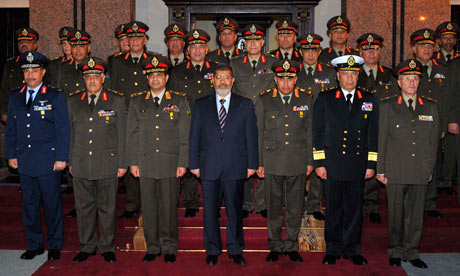By Dylan Takores
Impunity Watch Reporter, Middle East
JERUSALEM, Israel – Israeli prison officials agreed to admit journalists to view the interior conditions of a West Bank prison that holds Palestinian inmates.

The Israel Prison Service (IPS) made the decision in response to reports of torture and wrongful death of multiple Palestinian inmates that were detained in Israeli custody. In particular, one prisoner died of cancer earlier this month, spurring accusations of mistreatment and failure to provide proper medical assistance.
Prison warden Yaakov Shalom boldly stated, “We have nothing to hide,” after agreeing to allow journalists to view Ofer, a prison in the West Bank that holds approximately 700 Palestinian detainees. Ofer is just one of a group of prisons that collectively hold roughly 5,000 Palestinian prisoners.
The prison exterior is large and intimidating. High walls lined with guard towers are capped with barbed wire. Inside, the prison is divided into sections based on the inmates’ faction membership. Some of individual sections are devoted to Fatah, Hamas, Islamic Jihad, smaller groups, and inmates under 18 years of age.
Inmates are generally permitted to pray in prison yards surrounded by a fence of metal bars. Abdul Kahir Srour, a Palestinian inmate and resident of Ramallah, claimed his treatment “fluctuated” as a result of the allegations against the IPS. Nevertheless, Srour maintained his innocence, asserting that he has been in custody for five months without charge for alleged activities related to Hamas.
Despite four months of pleading, Muhammad Natsheh, an inmate in the Hamas section, complained that prison guards denied accommodation to his request for specific medical treatment. A prison medic stated that referrals were provided when necessary, arguing, “There is no neglect.”
Silwad resident Tarek Hamed, 17, explained that he was beaten by soldiers following his arrest for throwing stones at a highway near his home. Due to the mistreatment, his sentence was reduced from five months to one month of imprisonment. Yousef Hamed, 15, received similar treatment for the same offense. Mohammed Safi, 17, recalled that he was “slapped around” after his arrest and interrogation. However, none of the boys cited any mistreatment at the Ofer facility itself.
Shalom stated that his policies and interactions with inmates remained unchanged in the wake of the outside allegations. He concluded, “As long as they don’t create disturbances, it doesn’t matter what is going on outside. They have a lot to lose, and it’s worth it for them to behave accordingly.”
For further information, please see:
Reuters – Palestinians open Israeli jail replica to honour prisoners – 16 April 2013
Xinhua – Israel offers rare visit of Ofer prison ahead of Palestinian Prisoner Day – 15 April 2013
Media Line – Israel Trumpets Fair Treatment in Prisons – 14 April 2013
Washington Post – Israel allows journalists to visit West Bank prison after deaths in custody – 14 April 2013
Impunity Watch – Palestinian Inmate Death Causes Widespread Protests – 25 February 2013



